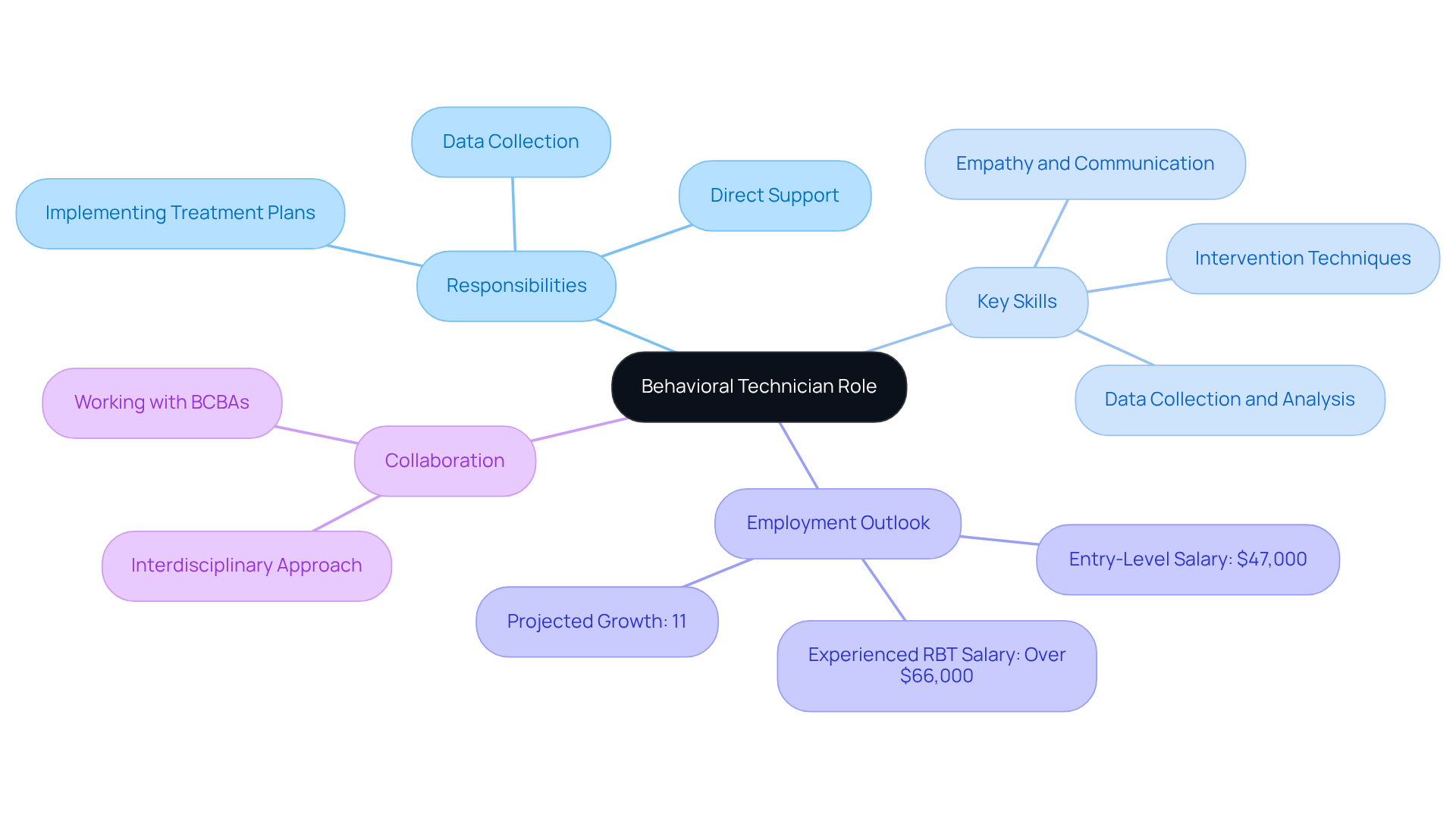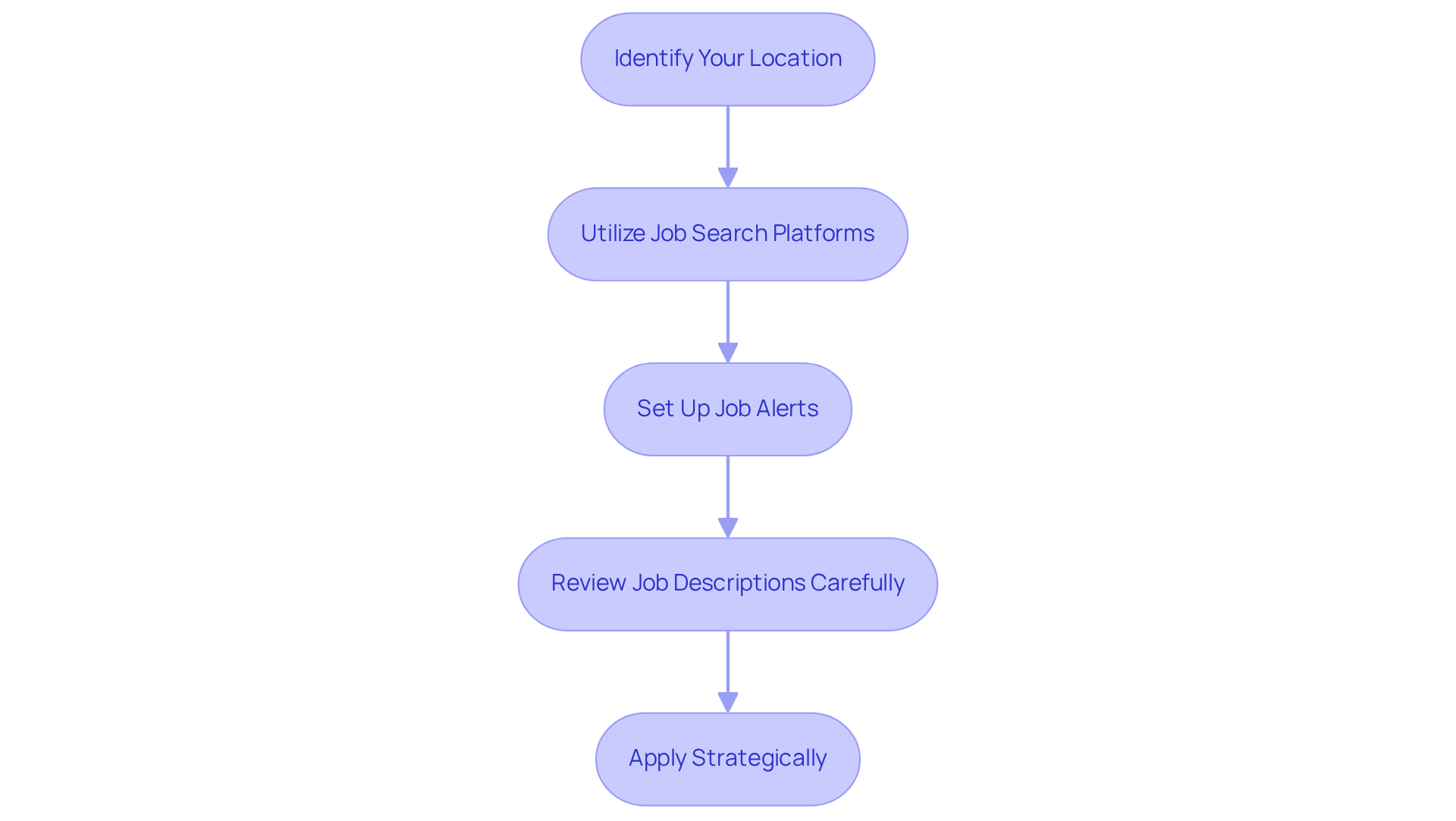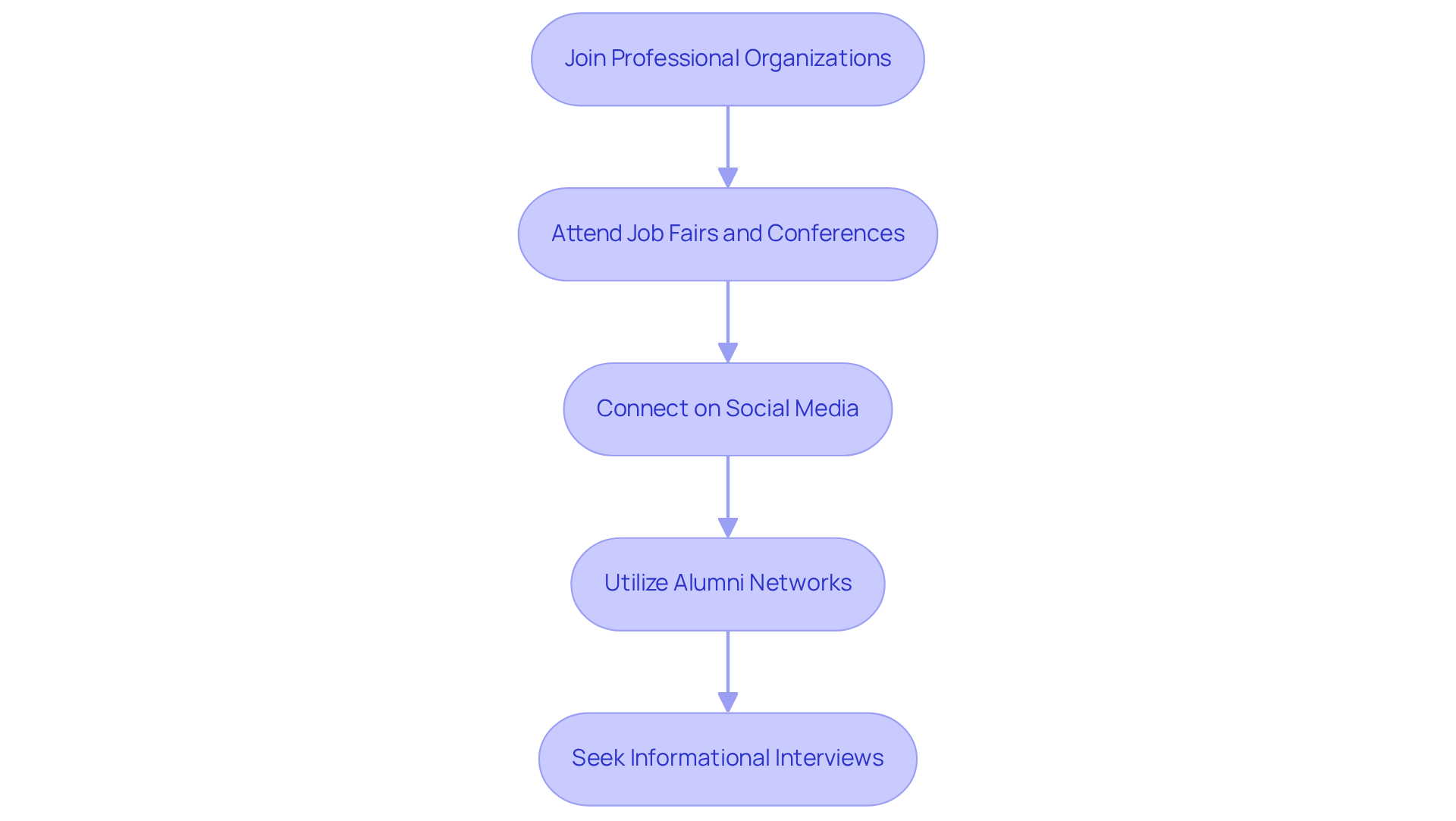September 19, 2025

The article serves as an essential guide for finding behavioral technician jobs, highlighting critical steps such as:
With the demand for Board Certified Behavior Analysts (BCBAs) on the rise, it is crucial for job seekers to tailor their applications effectively. By actively engaging with professional organizations, candidates can significantly enhance their job prospects in this rapidly growing field. This proactive approach ensures that job seekers are well-prepared to navigate the competitive landscape, positioning themselves for success in their career pursuits.
The role of a Behavioral Technician is increasingly vital in the realm of Applied Behavior Analysis (ABA) therapy, with the demand for these skilled professionals surging. A projected job growth of 11% over the next decade signals ripe opportunities in this field. However, navigating the job market can be daunting.
How can aspiring technicians effectively position themselves to secure rewarding roles amidst this growing demand? This guide offers a step-by-step approach to finding behavioral technician jobs, equipping readers with the strategies and insights needed to succeed in their job search.
Technicians are integral to the success of Applied Behavior Analysis (ABA) therapy, operating under the guidance of Board Certified Behavior Analysts (BCBAs). Their primary responsibilities encompass implementing treatment plans, meticulously collecting data on client progress, and delivering direct support to individuals facing behavioral challenges. The demand for these professionals is on the rise, with from 2021 to 2031, reflecting the increasing need for skilled support in the field. Entry-level salaries for Behavior Technicians are around $47,000 per year, with experienced Registered Behavior Technicians (RBTs) earning over $66,000 annually, highlighting the financial prospects in this career path.
Key skills essential for Behavioral Technicians include:
Collaboration with BCBAs is vital, as they provide guidance and supervision to ensure that interventions are evidence-based and align with treatment plans. In my search for behavioral technician jobs near me, I found that technicians work in various settings, including homes, schools, clinics, and community environments, which enhances their ability to provide targeted support.
As you prepare to seek roles in this field, consider these responsibilities and assess your qualifications in relation to the skills needed for success in 2025. Insights from BCBAs highlight the significance of Technicians in providing quality care and attaining meaningful progress for clients.

To effectively conduct a targeted job search for behavioral technician jobs near me, it is essential to consider several strategic steps that can significantly enhance your prospects.
By following these steps, you can streamline your job search process and significantly increase your chances of landing behavioral technician jobs near me.

The demand for Board Certified Behavior Analysts (BCBAs) is on the rise, with an anticipated job growth rate of 8 percent from 2020 to 2030. In this expanding sector, networking and utilizing available resources can significantly enhance your job search for behavioral technician jobs near me. Here are some effective strategies:
By applying these strategies, you can effectively navigate the job market and enhance your opportunities for obtaining fulfilling behavioral technician jobs near me in the ABA sector. The anticipated shortage of BCBAs highlights the growing demand for networking and professional connections in the field. Are you ready to take action and leverage these resources to advance your career?

The journey to securing a role as a Behavioral Technician is not only promising but also essential, especially given the increasing demand for skilled professionals in Applied Behavior Analysis (ABA). With a projected job growth of 11% and competitive salaries, this role offers financial stability and the opportunity to make a meaningful impact on individuals facing behavioral challenges. Now is the time to act.
Understanding the responsibilities, required skills, and potential career growth opportunities is crucial for anyone considering this path. Key strategies for conducting a targeted job search include:
Each step plays a vital role in enhancing job prospects. Engaging with professional organizations, attending job fairs, and tapping into alumni networks can significantly expand connections and open doors to potential job leads, emphasizing the importance of proactive engagement in the job market.
As the need for Behavioral Technicians continues to rise, aspiring technicians can position themselves for success in this rewarding field by following the outlined strategies and leveraging available resources. Embrace this journey, invest in your professional development, and take the necessary steps to secure a fulfilling role that advances your career while positively impacting the lives of those in need of support.
What is the role of a Behavioral Technician in ABA therapy?
Behavioral Technicians are integral to Applied Behavior Analysis (ABA) therapy, responsible for implementing treatment plans, collecting data on client progress, and providing direct support to individuals facing behavioral challenges under the guidance of Board Certified Behavior Analysts (BCBAs).
What is the job outlook for Behavioral Technicians?
The demand for Behavioral Technicians is increasing, with employment projected to grow by 11% from 2021 to 2031, reflecting the rising need for skilled support in the field.
What are the salary expectations for Behavioral Technicians?
Entry-level salaries for Behavioral Technicians are around $47,000 per year, while experienced Registered Behavior Technicians (RBTs) can earn over $66,000 annually.
What key skills are essential for Behavioral Technicians?
Essential skills for Behavioral Technicians include empathy and communication, data collection and analysis, and knowledge of intervention techniques for managing and modifying behaviors effectively.
How do Behavioral Technicians collaborate with BCBAs?
Collaboration with BCBAs is vital as they provide guidance and supervision, ensuring that interventions are evidence-based and align with treatment plans.
Where do Behavioral Technicians typically work?
Behavioral Technicians work in various settings, including homes, schools, clinics, and community environments, which allows them to provide targeted support tailored to individual needs.
What should I consider when preparing to seek a role as a Behavioral Technician?
When preparing to seek roles in this field, assess your qualifications in relation to the responsibilities and key skills needed for success in the profession.
Our expert recruitment strategies and AI-driven sourcing ensure that you receive top-notch candidates quickly, without compromising on quality. Whether you’re looking for BCBAs, Clinical Directors, or RBTs, we’ve got you covered.